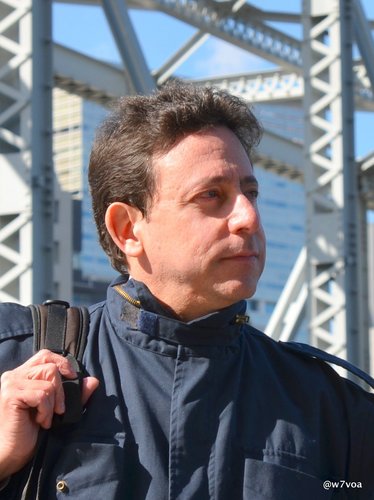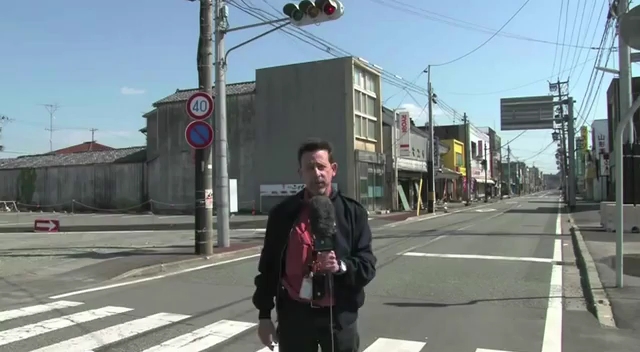Roughly 280 foreign correspondents are active in S. Korea, and the Seoul Foreign Correspondents’ Club (SFCC) acts as a hub for them. This organization seeks to protect and promote the professional interests regarding the correspondents of foreign news media working in Korea, strengthen their mutual ties, and promote friendship among foreign and local journalists. The Chung-Ang Herald was able to contact Steve Herman, who is the President of SFCC as well as the Northeast Asia Bureau Chief/Correspondent for VOA (Voice of America), and ask him a few questions. When watching the news, we can often see foreign correspondents delivering news from all over the world. As such, stories and events regarding the Korean peninsula are reported to other countries through the foreign correspondents residing in Korea, and when a major even occurs, they are the first to deliver the news overseas.
* VOA is the official external broadcast institution of the United States federal government. It provides a wide range of programming for broadcast on radio and TV and the Internet outside of the U.S. in 43 languages.

About
Mr. Herman is a veteran journalist with many years of experience in Japan. Prior to taking his post in South Korea in mid-2010, Mr. Herman was the South Asia bureau chief based in New Delhi, India.
He was one of the few journalists to spend time in the Fukushima I Nuclear Power Plant “hot zone” and visit the ground of the crippled facility in April 2011. His Twitter (@W7VOA) coverage from Japan’s earthquake and tsunami disaster sites has been cited by the Asian American Journalists Association, NPR, and others.

Mr. Herman was elected for five consecutive years (1988-2002) to serve as Chairman of The Foreign Press in Japan (FPIJ) after completing a one-year term President of the Foreign Correspondents’ Club of Japan (FCCJ).
He is also the author of a pictorial book, Bhutan in Color 2007: A Himalayan Kingdom through the Lens of an American Journalist.

1. How did you get into this field of work?
I began working part-time in radio stations when I was in high school. I joined my school newspaper in middle school and had a column in a weekly ethnic newspaper in my community when I was 12 years old. By the time I was 17 or 18 I was already doing occasional news reports for network radio and wire services as a "stringer." I got my first job in television news when I was 19 or 20. I was super ambitious despite a lack of experience or much talent.
2. Did you have a role model as you were building up your career?
Not really. But I did greatly admire CBS anchorman Walter Cronkite (an American broadcast journalist, best known as anchorman for the CBS Evening News for 19 years from 1962 to 1981) as a child. When I was older I was also inspired by other CBS journalists such as Edward R. Murrow (was noted for his honesty and integrity in delivering the news) and Fred Friendly (was a president of CBS News, originated the concept of public broadcasting and played a major role in establishing the Public Broadcasting Service or PBS television).
3. S. Korea has been having a lot of problems with the suppression of the press, as we can see from the strikes that are taking place at MBC and KBS. As a foreign journalist, what is your impression regarding the media in S. Korea?
I tend not to opine on purely domestic issues in the countries I am covering. I would say that South Korea has come a long way in terms of media freedom since decades past when the country was essentially under a military government. But there is obviously still room to go, especially when organizations such as Freedom House (a U.S. based NGO that conducts research and advocacy on democracy, political freedom and human rights) characterize South Korea's media as "partly free."
(a story that Mr. Herman did related to this issue can be seen at http://www.youtube.com/watch?v=9UeENmIt3Fo)
4. I noticed that you update your Twitter very frequently. Do you also make use of Twitter when writing your reports?
Twitter is my "reporter's notebook" frequently. It is valuable to immediately get out headlines and to also gather information about breaking news. But I would not use Twitter as a sole source. I want to verify the information through other means, as well.
5. Most of your reports are about N. Korea but is it not difficult to report about a country that is so restricted, and isolated?
Yes, I probably have one of the most challenging assignments -- trying to cover a country that I have not been able to enter. So, yes, indeed it is difficult. But even if I was in North Korea I would not be able to move about freely and get people to openly speak to me, so being in Seoul is as good a place as any from which to try to report about the DPRK.
6. In a former interview, you described S. Korea as a country that is stimulating and one that is in its ‘transition phase’. In what aspect do you feel that S. Korea is at its turning point?
South Korea is still growing up. There are still a lot of people in this country just getting by, hoping their children will have better jobs, better education and a higher station in life than they have. This ambition and striving to betterment gives South Korea a lot of energy. By contrast, Japan seems more sleepy, like a kind of Switzerland in Asia.
7. I know that you have spent most of your adult life in Asia. Why did you choose to stay for such a long period of time?
I feel quite comfortable in Asia. I'm not exactly certain why. I never intended to spend a total of 25 years in Asia, it's just turned out that way. I'm not sure if my next posting will be in Asia or elsewhere but I am certain I will maintain a personal and professional connection to the region for the rest of my life.
8. What was the most memorable experience that you have had in your career so far?
There's not one episode that stands out above all the others. Many of the experiences are distinct, including being in Afghanistan during warfare and terrorist attacks, covering a coup in Thailand, reporting on the intifadah (an uprising among Palestinian Arabs of the Gaza Strip and West Bank, beginning in late 1987 and continuing sporadically into the early 1990s, in protest against continued Israeli occupation of these territories) in the Palestinian territories and being taken into custody by the Israeli military, walking amid the death and destruction from large quakes in Japan, etc. I certainly find myself in very dangerous situations when on the job, although I am not a thrill-seeker outside of work (I even avoid amusement park rides!).
9. What are some important qualifications that a journalist should have?
Curiosity, the ability to engage with strangers, flexibility and schooling in something besides journalism.
10. Many students nowadays are interested in getting a job in journalism. Could you give some advice for students who are aiming to become a journalist?
Too many students are hoping to be TV news anchors or foreign correspondents. There are very few of these jobs and most aspirants are not going to make it for a variety of reasons. There are many types of jobs in journalism: specialty reporters (covering an industry for example), radio news producer, TV program director, videographer, photojournalist, etc.
Learn as many different skills as possible. Just being able to write or look good on TV isn't going to cut it amid intense competition. Learn how to edit digital video, a second or third foreign language, an expertise in a specialty field (it can be anything: aerospace, oceanography, pharmacology, physics, unconventional warfare). The more non-core journalistic skills you have the better chance of finding jobs and doing better once you are on the job.
I've been doing this for 35 year, am still learning new skills and studying all sorts of subjects.

